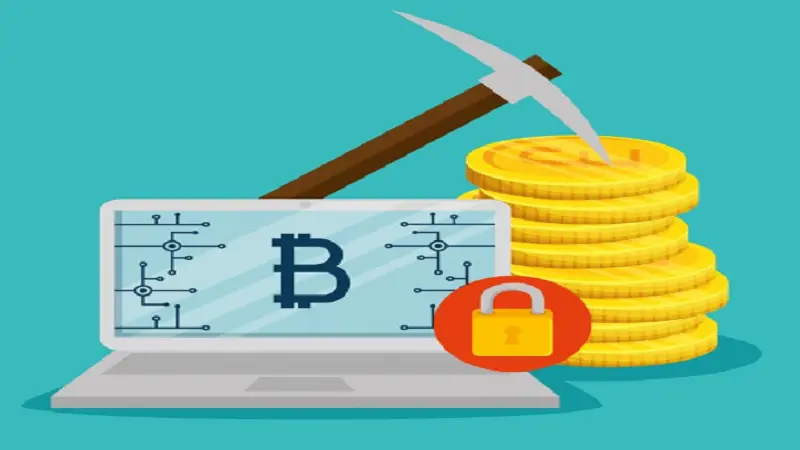Understanding The Block Cashapp Block Btcthrouvalasdecrypt
In the ever-evolving landscape of digital finance, CashApp and Bitcoin (BTC) have emerged as two significant players. CashApp has simplified how individuals interact with their money, while Bitcoin continues to challenge traditional financial systems. However, navigating these platforms can sometimes lead to concerns about security and decryption. In this article, we will delve into what it means to block or decrypt transactions on block cashapp block btcthrouvalasdecrypt and how Bitcoin fits into this complex equation.
CashApp: Revolutionizing Personal Finance
Launched by Square Inc., block cashapp block btcthrouvalasdecrypt is a mobile payment service that allows users to send, receive, and manage money conveniently through their smartphones. Over the years, it has become a popular tool for both personal and small business transactions. CashApp also offers additional features like direct deposit, investment in stocks, and cryptocurrency trading.
However, with the rise in popularity comes the rise in security concerns. One of the critical aspects of ensuring a safe digital financial experience is understanding how to protect your transactions and personal data. Let’s break down some of these concerns and how they relate to the concept of decryption and blocking.
The Concept of Blocking on CashApp
Blocking on CashApp refers to the ability to prevent certain users from sending you money or interacting with you on the platform. This feature is particularly useful if you encounter someone who is repeatedly sending unwanted requests or if you suspect fraudulent activity.
How to Block Someone on CashApp:
- Open CashApp: Launch the CashApp on your mobile device.
- Navigate to the Profile: Find the profile of the person you wish to block.
- Tap the Options Menu: This is usually represented by three dots or a similar icon.
- Select ‘Block’: Confirm your decision to block the user.
By blocking someone, you are effectively preventing them from initiating any further transactions with you. This action is a straightforward way to secure your block cashapp block btcthrouvalasdecrypt account from potential misuse.
Understanding Decryption in Digital Transactions
Decryption is the process of converting encoded or encrypted data back into a readable format. In the context of digital transactions, encryption and decryption play vital roles in safeguarding sensitive information. block cashapp block btcthrouvalasdecrypt, like many financial platforms, uses encryption to protect users’ data, ensuring that only authorized parties can access it.
Encryption: This is the process of encoding information so that it is unreadable to anyone except those with the decryption key. For instance, when you make a transaction on block cashapp block btcthrouvalasdecrypt, your data is encrypted to prevent unauthorized access.
Decryption: This is the reverse process, where encrypted data is transformed back into a readable format. Only individuals with the appropriate decryption key can access this information.
Bitcoin and its Security Protocols
Bitcoin, the first and most well-known cryptocurrency, operates on a decentralized network called blockchain. Unlike traditional currencies managed by central banks, Bitcoin relies on a distributed ledger technology to verify and record transactions.
Blockchain Technology: At the core of Bitcoin’s security is blockchain technology. Each transaction is recorded in a “block,” and these blocks are linked together in a chain. This structure makes it nearly impossible to alter past transactions without changing all subsequent blocks.
Encryption in Bitcoin: Bitcoin transactions are secured through cryptographic techniques. When you initiate a Bitcoin transaction, it is signed with your private key—a form of digital signature that ensures the transaction’s authenticity.
Decryption in Bitcoin: Similar to CashApp, Bitcoin transactions are encrypted for security. When a transaction is broadcast to the network, it remains encrypted until it is verified and added to the blockchain. This process ensures that the transaction details are secure and only accessible to the parties involved.
Decrypting Bitcoin Transactions: A Hypothetical Scenario
Imagine a scenario where you need to decrypt a Bitcoin transaction. While the concept of decryption is crucial, in practice, Bitcoin transactions are not decrypted in the traditional sense. Instead, they are verified through a process called mining.
Mining: Bitcoin mining involves solving complex mathematical problems to validate transactions. Miners use powerful computers to process transactions and add them to the blockchain. This process ensures that all transactions are legitimate and prevents double-spending.
Transaction Verification: Once a transaction is included in a block and added to the blockchain, it is considered verified. The encryption used in Bitcoin transactions ensures that they are secure and can only be accessed by the parties involved.
Addressing Security Concerns: Blocking and Decryption
The concepts of blocking and decryption are crucial for maintaining security in both CashApp and Bitcoin transactions. While blocking is a feature used to prevent unwanted interactions, decryption is a technical process that ensures data is protected and only accessible to authorized users.
In CashApp:
- Blocking Users: Prevents unauthorized or unwanted transactions.
- Encryption: Ensures that your personal and transaction data is secure.
In Bitcoin:
- Blockchain Security: Uses encryption to protect transaction data.
- Mining: Verifies transactions to maintain the integrity of the blockchain.
Practical Tips for Securing Your Digital Transactions
- Regularly Update Security Settings: Both CashApp and Bitcoin wallets often release updates to enhance security. Ensure that your app and wallet are always up to date.
- Use Strong, Unique Passwords: Create complex passwords for your accounts and change them regularly.
- Enable Two-Factor Authentication (2FA): Adding an extra layer of security can help protect your accounts from unauthorized access.
- Monitor Transactions: Regularly review your transaction history to detect any suspicious activity.
- Educate Yourself: Stay informed about the latest security practices and potential threats.
Conclusion
Navigating the world of digital finance can be complex, but understanding key concepts like blocking and decryption can help you manage your CashApp and Bitcoin transactions more securely. block cashapp block btcthrouvalasdecrypt offers simple tools to block unwanted interactions, while Bitcoin uses advanced encryption and mining processes to ensure transaction integrity. By staying vigilant and employing best practices for security, you can protect your financial assets and enjoy the benefits of modern digital finance with confidence.
As technology continues to evolve, so too will the methods for securing our digital transactions. By keeping informed and proactive, you can navigate these changes with ease and continue to benefit from the conveniences offered by platforms like CashApp and Bitcoin.


